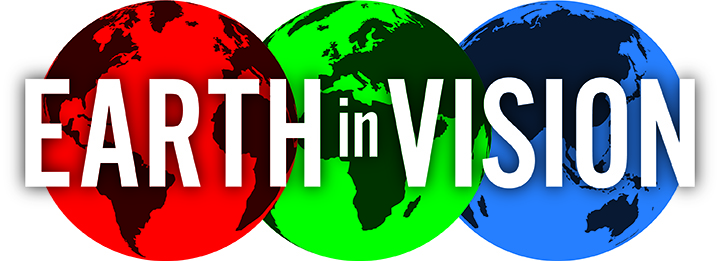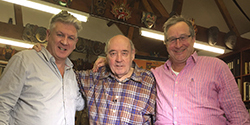
Earth in Vision is a three-year Arts and Humanities Research Council funded project based in the Geography Department of The Open University, and led by Professor Joe Smith. The project explores the BBC archives of environment themed television and radio programmes from the last 7 decades, with two central aims. The first is to think through the potential of these archives as a digital resource that will be attractive across many areas, from teaching and learning to amateur media production and consumption and indeed for a range of activities that we may not yet perceive. We have asked a range of ‘digital citizens’ about how they would use such archives, and what tools they think they would need. The second aim is to illustrate the potential of digital broadcast archives for researchers. Hence we have worked to redraft contemporary environmental history with broadcasting written into the script. To this end, we have made three ebooks which draw directly on our sample of fifty hours of BBC programmes. The ebooks will be free to download, and will link to a website holding a sample of resources and archive content for free public use.
Along with the programmes themselves we have been working in the BBC’s paper archives of files related to programmes and policies, and we have also filmed nearly thirty full length interviews with media producers, from icons such as Sir David Attenborough and Desmond Morris, to up and coming digital natives who are drawing on new forms of web based social media to share their work. This collection of interviews now represents an important historical collection in its own right, as well as a powerful resource for anyone wanting to make or think about environmental media.
The team
 Zdenek Zdrahal, Kim Hammond, Joe Smith and George Revill
Zdenek Zdrahal, Kim Hammond, Joe Smith and George Revill
Joe Smith is Professor of Environment and Society in the Geography Department at The Open University, and leads the AHRC funded Earth in Vision project. He is also leads the AHRC funded Stories of Change project. He is a social scientist whose research engages with environmental history, policy and politics.
George Revill is a Senior Lecturer in Geography at The Open University and a research investigator on Earth in Vision. He is an historical-cultural geographer with a particular interest in landscape.
Kim Hammond trained and has worked as both an environmental scientist and a cultural geographer. She is Research Associate at the Geography Department of The Open University. Kim works on both the Earth in Vision and Stories of Change projects.
Zdenek Zdrahal is Professor of Knowledge Engineering at the Knowledge Media Institute at The Open University
The production team
 John McIntyre, Desmond Morris and Jeremy Bristow
John McIntyre, Desmond Morris and Jeremy Bristow
This unique collection of interviews for The Open University’s Earth in Vision project has been produced and directed by Jeremy Bristow and edited by John McIntyre.
Jeremy Bristow is a documentary maker with a special interest in current affairs, history, and environmental issues. Over the last thirty years he has made award winning documentaries with the BBC’s Natural History Unit, BBC’s News and Current Affairs department, Channel Four, National Geographic and Channel NewsAsia.
John McIntyre is a former BBC Correspondent, who reported on major stories around the world for the BBC’s main news outlets. He now specialises in underwater filmmaking. His most recent documentary Shark Junction appeared on NatGeo Wild and The Smithsonian Channel. He was the principal underwater camera on the Panda-award-winning cinema film The End of the Line. He films and presents special features for the BBC’s Travel Show. He has also authored books on sharks and The Red Sea. John is also an Avid editor.

Rate and Review
Rate this article
Review this article
Log into OpenLearn to leave reviews and join in the conversation.
Article reviews